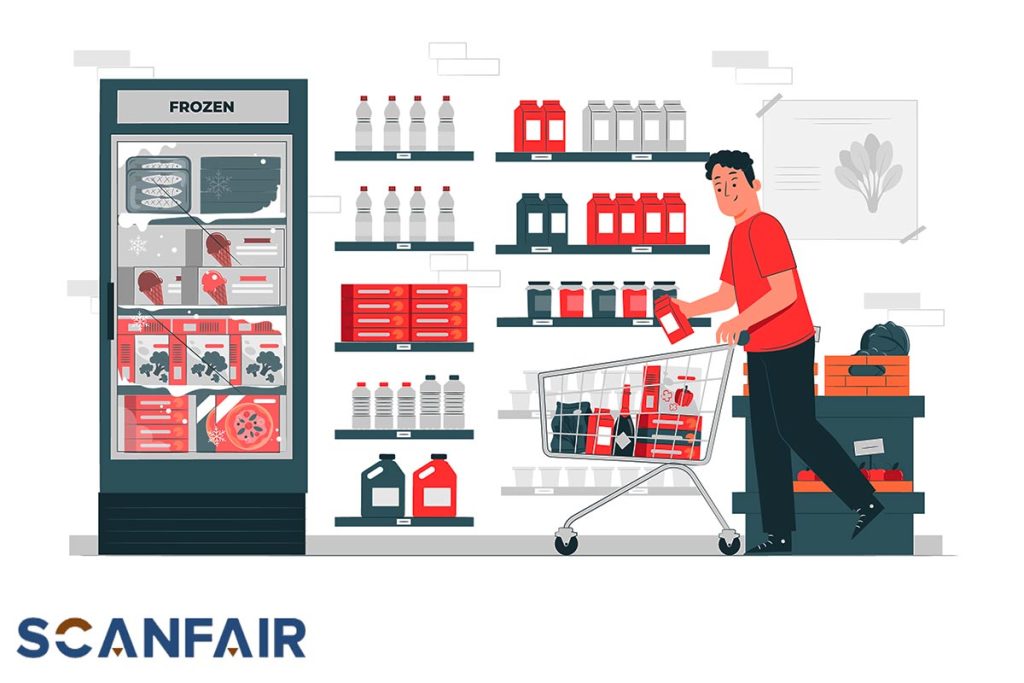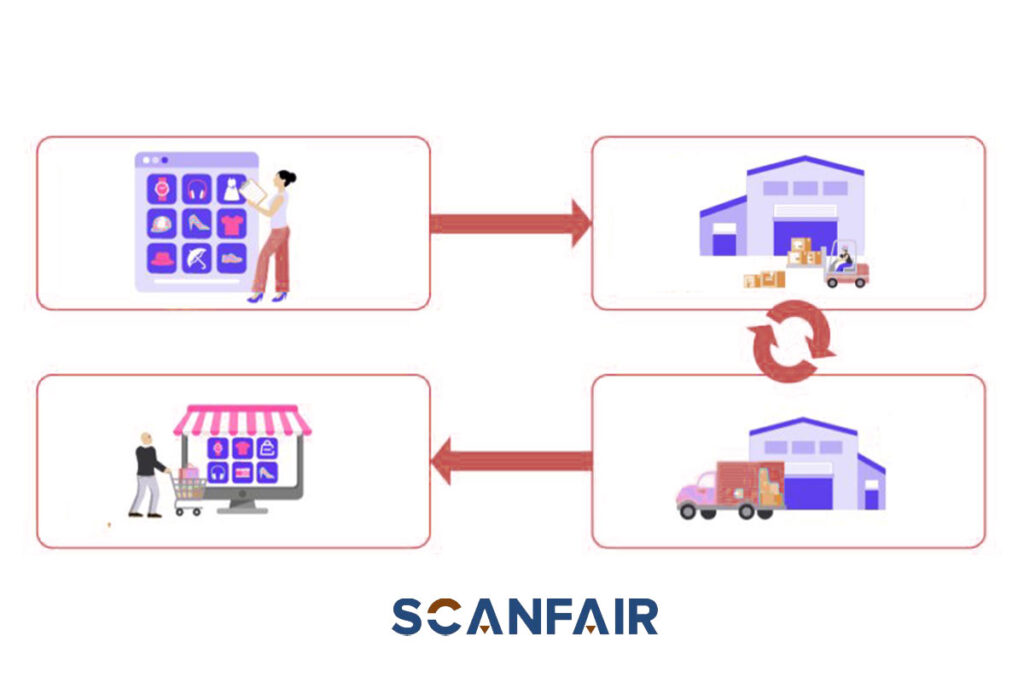Retail arbitrage is the process of buying products in bulk from retail stores and reselling them online. It’s a way to make money with very little effort required on your part, but it also has drawbacks that you should consider before jumping into this business model. Read on if you want to learn how to do retail arbitrage and understand its pros and cons.
What is Retail Arbitrage?
Retail arbitrage is a business model where you buy items at a lower price and sell them at a higher price. It’s pretty simple, but the strategy can be used in many ways. You can do this online or in person.

If you want to make money through retail arbitrage through the internet, there are several steps you need to take:
- Find an item that’s selling for less than its market value
- Buy that item at the lower price
- Sell it online for much higher prices
Strategies For Retail Arbitrage
- Research the Market: Before beginning your retail arbitrage journey, it is essential to research the market to understand what products are in demand and what price points consumers are willing to pay. This will help you determine which items to purchase and how to price them when you resell them.
- Source Products from Multiple Retailers: To maximize your profits, it is essential to source products from multiple retailers. This will give you access to a wider variety of products and prices, allowing you to purchase items at the best price and resell them at a higher price.
- Utilize Online Marketplaces: Online marketplaces such as Amazon, eBay, and Etsy are great places to find products to resell. These marketplaces are filled with products already in demand, so you can find items at discounted prices and resell them for a profit.
- Take Advantage of Clearance Items: Many retailers offer clearance items at discounted prices. Please take advantage of these items and purchase them to resell for profit.
- Keep an Eye on Trends: Trends come and go quickly, so it is crucial to stay up-to-date on what is popular in the market. This will help you identify items in demand and purchase them at a discounted price before they become widespread.
Is Retail Arbitrage Still Profitable in 2023?
Yes, retail arbitrage is still profitable in 2023.
Retail arbitrage isn’t going anywhere anytime soon. This business model allows you to make money by reselling products from physical stores and online platforms. You can do it as a hobby, a full-time gig from home, or using your phone.
You have probably heard of people making thousands or even millions of dollars through retail arbitrage. Anyone can start earning extra cash by doing this business as long as they know how to do it right with the right tools and methods.
How Does Retail Arbitrage Work?
Retail Arbitrage works by identifying a product on sale at a local store, buying it, and selling it on Amazon. You can then turn around and make a profit from this sale (and repeat the process).
For example: Say you’re at Target and see that they have an 8-pack of AA Duracell batteries for $7.99. You buy these batteries because you know that on Amazon, they sell for closer to $12 per battery pack. You then list them for sale on Amazon at about $12 each and make a quick profit of just under $4 per battery pack — or about 25% profit!
How to Start Doing Retail Arbitrage?
If you’re interested in starting a retail arbitrage business, there are two main steps to get started:
- Find a product to sell.
- Find a supplier and retail store with the same product at different prices so that you can buy from them and make money off your purchase price difference.
After that, it’s just about finding shipping services and payment processors!
Pros and Cons of Retail Arbitrage
Pros
Low Risk:
Retail Arbitrage is a very low-risk investment strategy. It requires minimal capital, and the risk of loss is minimized due to the ability to resell products quickly and without holding onto them for an extended period.
Low Investment:
Retail Arbitrage requires a low initial investment, making it a great way to start investing. It also allows investors to diversify their portfolios without investing much money.
High Returns:
Retail Arbitrage can generate high returns due to the potential to buy products at a discounted price and sell them at a higher price. This can lead to a higher profit margin than other forms of investing.
Flexibility:
Retail Arbitrage is a flexible investment strategy, allowing investors to buy and sell products quickly and easily. This will enable them to respond to market changes and take advantage of opportunities quickly.
Consistent profits:
With retail arbitrage, you’ll be able to make consistent profits by buying products at a discount and reselling them for a higher price. In fact, it’s one of the best ways for new sellers to get started in eCommerce without needing to invest in inventory or hiring employees.
Low entry barrier:
Unlike wholesale or drop shipping, which requires expensive inventory or large amounts of capital upfront, retail arbitrage doesn’t involve any upfront costs. You can start making money from home today just by using your smartphone!
Cons
● Not always profitable: While retail arbitrage is generally considered one of the most beginner-friendly ways to make money online (especially when compared with other methods like dropshipping), it does involve some risk involved because of factors like competition and seasonality. If you’re willing to take on this risk, though, there are plenty more pros than cons here!
s of Retail Arbitrage
- Restocking Fees: Many retailers charge restocking fees for returned items. This can be a high cost for retail arbitrageurs if they cannot resell the item.
- Limited Inventory: Retail arbitrageurs are limited to store inventory. This means they may need help finding the items they need in the quantities they need.
- Competition: As more people become aware of retail Arbitrage, competition for the same items increases, making it more difficult to find profitable items.
- Shipping Costs: Shipping costs can be expensive, especially when shipping large or heavy items. This can eat into profits if not accounted for.
- Risk of Returns: As with any retail business, there is the risk that items will be returned. This can result in lost profits if the item cannot be resold.
Tips for Successful Retail Arbitrage
- Do Your Research: Before buying items for reselling, be sure to research the market and the product you’re interested in. Check out the prices of the item on different websites and compare them to the prices you see in stores.
- Use Online Tools: Many online tools are available to help you find the best deals. Use them to compare prices and find the lowest prices available.
- Shop at Clearance Stores: Clearance stores are a great place to find bargains. You can often find deeply discounted items that you can resell for a profit.
- Buy in Bulk: Buying items in bulk can help you get the best deals. Many stores offer discounts for buying in size, so take advantage of this to get the best prices.
- Monitor Trends: Keep an eye on trends in the market and look for items in high demand. This will help you determine which items are likely to be profitable.
- Network: Networking with other retailers can help you stay up to date on the latest deals and trends. This will help you find the best deals and stay ahead of the competition.
- Invest in Quality: Don’t skimp on quality when buying items for reselling. Invest in quality items that will last and be attractive to customers.
- Offer Great Customer Service: Customer service is critical in retail Arbitrage. Offer excellent customer service to ensure customers are satisfied with their purchases and return for more.
- Be Flexible: Be flexible with your pricing and be willing to adjust your prices as needed. This will help you stay competitive and maximize your profits.
Tools and Resources for Retail Arbitrage
- Amazon Seller Central: Amazon Seller Central is a platform that allows sellers to manage their business on Amazon. It provides tools to list items, create shipping plans and work orders, and track performance.
- Profit Bandit: Profit Bandit is a mobile app that helps sellers compare prices and identify profitable opportunities for retail Arbitrage.
- The Wholesale Formula: The Wholesale Formula is an online course that teaches sellers how to find and source wholesale products for retail Arbitrage.
- Tactical Arbitrage: Tactical Arbitrage is a web-based software that helps sellers find profitable arbitrage opportunities.
- ScanPower: ScanPower is a mobile app that helps sellers scan barcodes and compare prices to identify profitable opportunities for retail Arbitrage.
- FBA Calculator: The FBA Calculator is an online tool that helps sellers estimate the cost of selling items on Amazon using Fulfillment by Amazon (FBA).
Regulations and Laws for Retail Arbitrage
Retail Arbitrage is buying products from retail stores at discounted prices and reselling them online for a profit. While this can be lucrative, it is crucial to understand the laws and regulations governing this type of activity.
Tax Laws:
In the United States, any profits from retail Arbitrage are subject to taxation. Depending on the state, sales tax may need to be collected and remitted to the appropriate state agency. It is also essential to keep accurate records of all sales and purchases to ensure that all taxes are paid correctly.
Consumer Protection Laws:
Depending on the state, laws may protect consumers from deceptive or unfair practices. These laws may require that all products purchased for resale must be clearly labeled with information such as the manufacturer, price, and date of purchase.

Competition Laws:
In some states, it is illegal to purchase products from a retail stores and resell them online for a profit. This is because it can be seen as an unfair competitive advantage over other online sellers.
Intellectual Property Laws:
When selling products online, it is vital to make sure that any trademarks, copyrights, or other intellectual property rights of the manufacturer are not violated. This includes not using the manufacturer’s branding or logos without permission.
Return Policies:
Depending on the state, there may be laws requiring retailers to accept returns of products purchased from them. Therefore, it is crucial to understand the return policies of any retail stores from which products are purchased.
Retail Arbitrage can be lucrative, but it is essential to understand the laws and regulations governing this type of activity. By following the laws and rules, retailers can ensure that their business is compliant and not putting themselves at risk of legal action.
Finding Retail Arbitrage Opportunities
Retail Arbitrage is buying products from a retailer at a lower price and reselling them at a higher price. Retail arbitrage opportunities can be found in many places, including online stores, discount stores, thrift stores, and liquidation sales. Online stores often have the best prices, as they don’t have to pay for overhead costs like physical stores. Discount stores, thrift stores, and liquidation sales can also have great deals, as they often have overstocked or slightly damaged items. Researching the market before purchasing items is essential to ensure they can be resold at a profit.
Best Practices for Retail Arbitrage
- Research Your Products: Before buying a product for retail Arbitrage, research the item to understand its demand, pricing, and availability.
- Source Quality Products: Only source quality products from reputable suppliers and manufacturers.
- Price Competitively: Make sure to price your products competitively and within the market range.
- Utilize Automation Tools: Use automation tools to help you list, track, and manage your inventory.
- Monitor Your Competition: Monitor your competition to know what products and prices they offer.
- Manage Your Inventory: Keep track of your inventory and ensure it is up to date.
- Leverage Your Network: Leverage your contacts to find new inventory sources.
- Stay Updated: Stay updated with the latest trends and developments in the retail arbitrage industry.
- Invest in Education: Invest in education and resources to stay ahead of the competition.
- Focus on Customer Service: Focus on customer service to ensure customer satisfaction and loyalty.
Final Thoughts
Retail Arbitrage is a great way for people to make money online. It is a low-risk investment that can yield high returns. It is also a great way to supplement your income and make extra money. With the proper knowledge and a bit of research, anyone can become a thriving retail arbitrageur. The key to success is staying organized and always looking for new products to purchase and resell. With the right strategy and dedication, retail Arbitrage can be a great way to make money from the comfort of your home.

